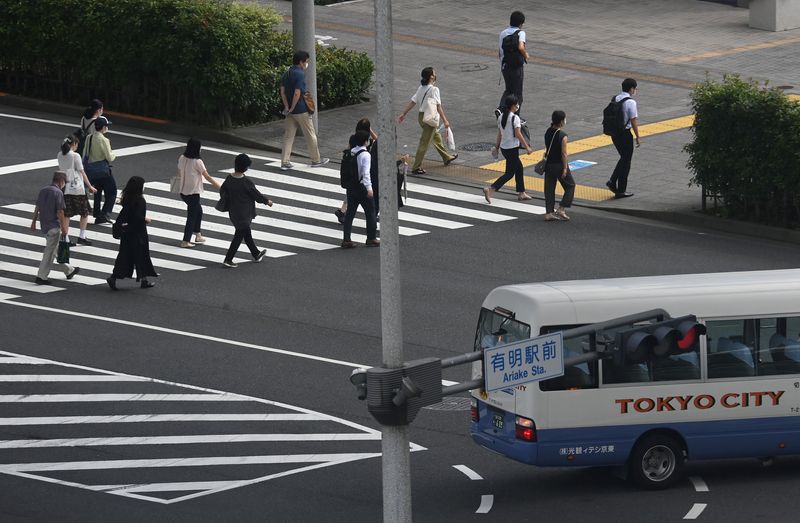By Kantaro Komiya
TOKYO (Reuters) - Japan's jobless rate rose to 2.8% as the surge in coronavirus infections and mobility curbs hit service sector activity, although a gauge of job availability grew to a 21-month-high in January, government data showed on Friday.
The mixed data came as firms in the world's third-largest economy conclude annual labour talks, while downside pressure from record coronavirus deaths and the Ukraine crisis overshadow the recovery outlook.
"The COVID-19 outbreak continued to halt economic activity in February, partly lingering in March, which is not good for the current employment situation," said Takumi Tsunoda, senior economist at Shinkin Central Bank Research Institute.
The seasonally adjusted unemployment rate compared with 2.7% in December, which was also the median forecast in a Reuters poll of economists.
The number of workers stood at 66.9 million in January on a seasonally-adjusted basis, posting the first decline in three months as resignations due to unfavourable business conditions grew by 70,000.
The retail, education and transport sectors were hit hard by the Omicron variant outbreak with reinstated curbs leading to more than 100,000 jobs lost in each of those industries in January, from the same month last year.
Workers on paid furlough increased by 590,000 to a five-month-high of 2.49 million in January from the previous month, especially in hospitality businesses such as restaurants and hotels.
The jobs-to-applicants ratio was 1.20 in January, labour ministry data showed, up 0.03 point from the previous month's 1.17 and higher than a Reuters poll forecast of 1.16.
The reading was the highest since 1.31 marked in April 2020.
A health ministry official said the growth in job openings outpaced that of job-seekers in January because more companies had submitted postings data before domestic COVID-19 infections sky-rocketed later in the month.

Looking ahead, service sector jobs will bounce back as domestic coronavirus infections ease, said Shinkin's Tsunoda.
"Meanwhile, rising uncertainty over the global economy on the Ukraine crisis is making manufacturers wary about investments and hiring."
